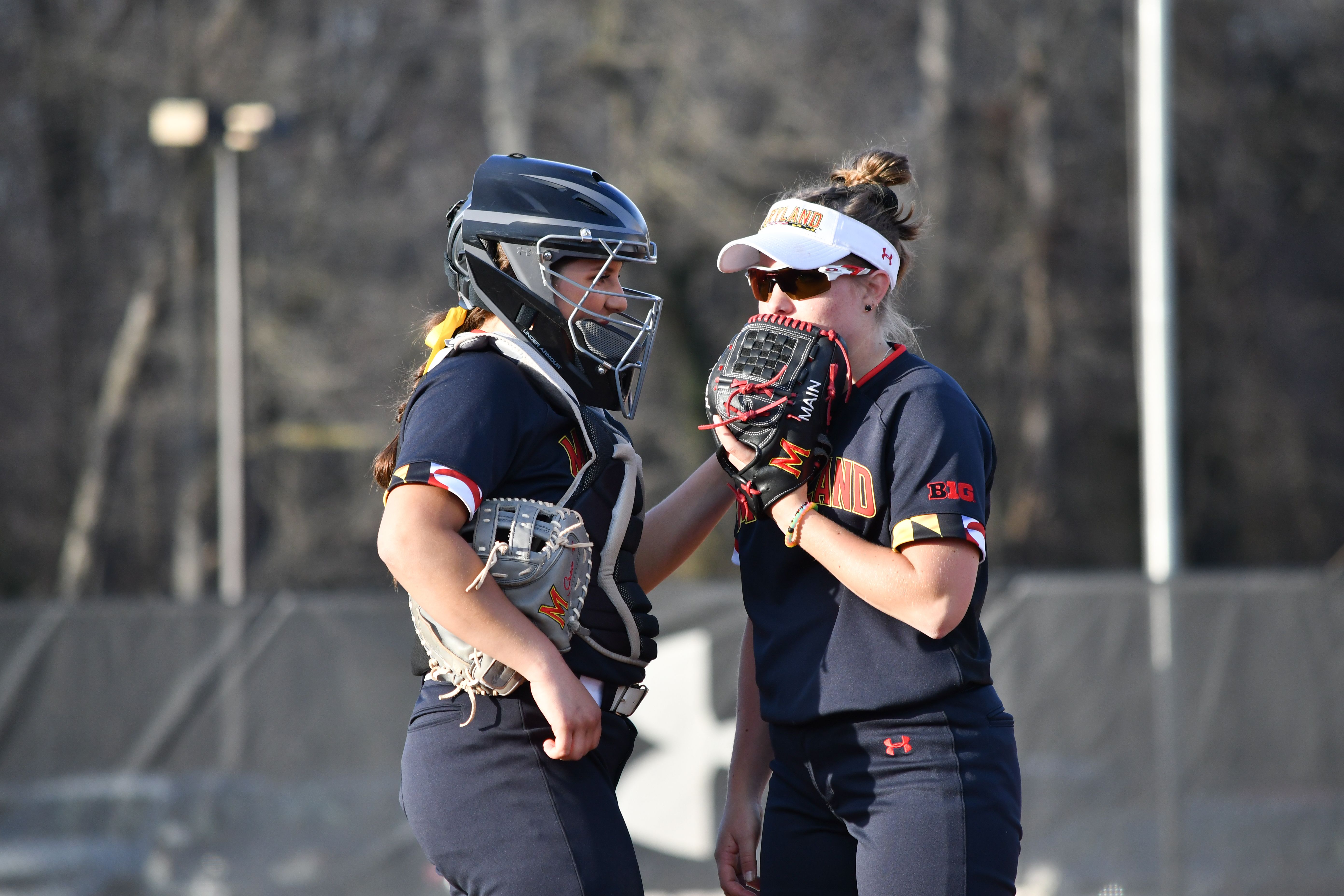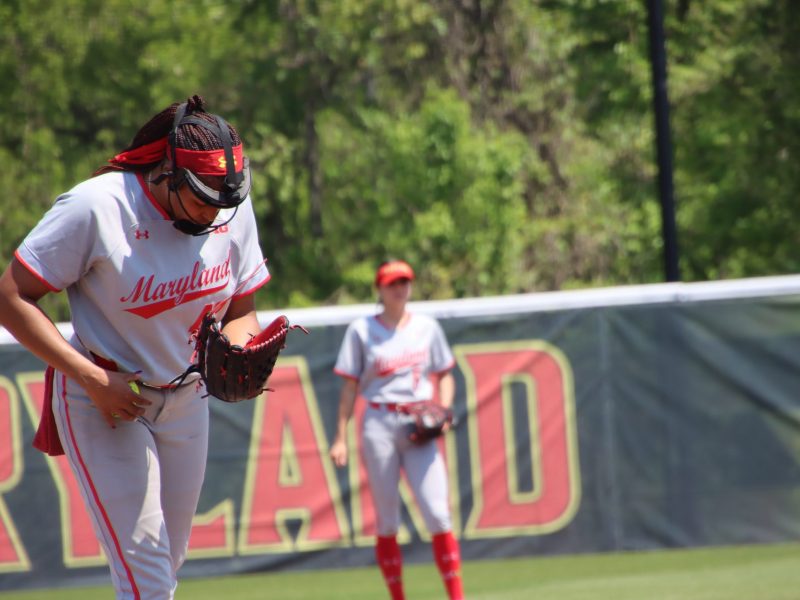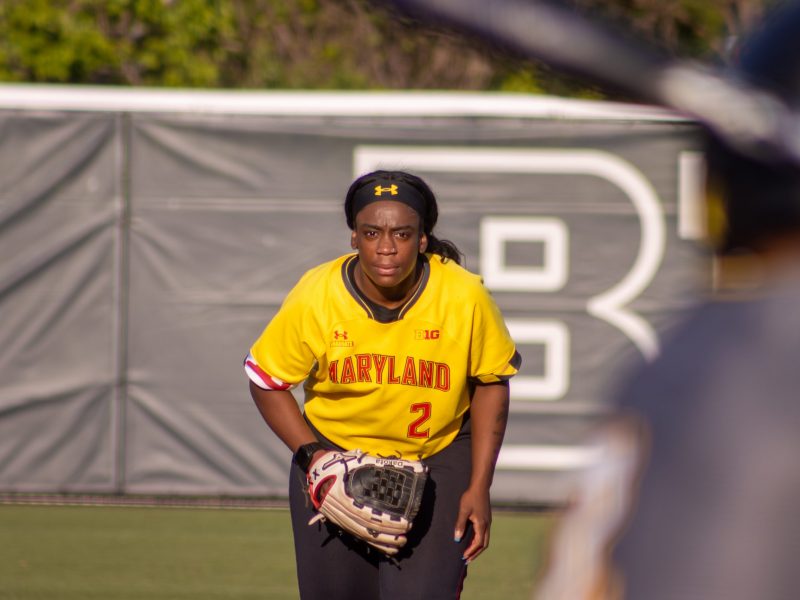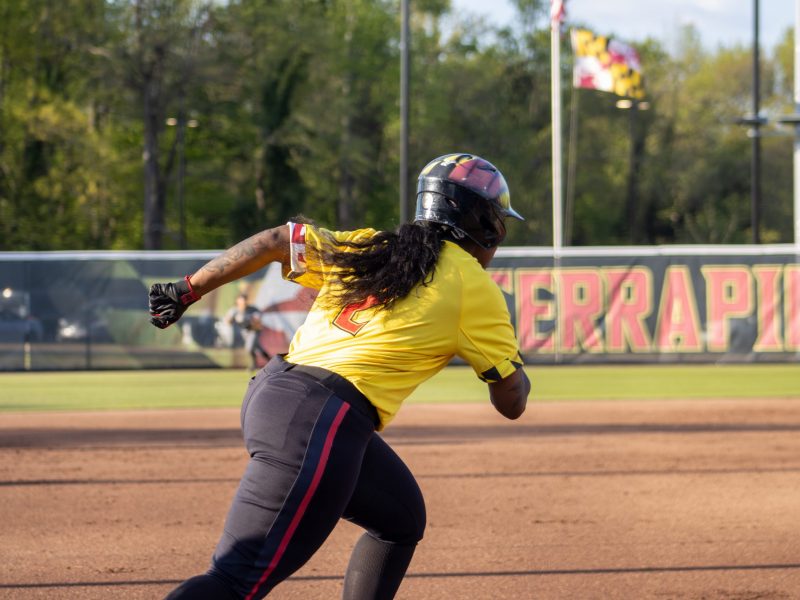In the third inning of an eventual 10-0 drubbing by then-No. 9 Alabama on Feb. 9, catcher Gracie Voulgaris crouched behind the plate and received pitches from Maryland softball’s third pitcher of the day.
Pitcher Victoria Galvan presented another challenge for the freshman, who was finding a starting spot behind the plate during the Terps’ opening weekend. Each arm in Maryland’s five-person staff has their own quirks, creating a steep learning curve for Voulgaris.
But Voulgaris has taken the challenge in stride, providing stability at catcher for the first time since Kristina Dillard started all 51 games at backstop in 2017. And at the plate, Voulgaris has paced the heart of the order with a .411 on-base percentage.
While coach Julie Wright has been impressed by the Illinois native’s offensive statistics, Voulgaris’ composure handling a hodgepodge of pitchers is equally vital.
“You’re just kind of thrown in the fire and told what to do [as a freshman],” Wright said. “She’s done a really good job at figuring it out and staying calm.”
[Read more: Despite a series loss, Maryland softball bucked its Big Ten hitting woes]
Voulgaris has been in the Terps’ starting lineup in all but one game, and has been behind the plate in all 37 contests.
Last year, Anna Kufta found herself catching in most games, filling a gap in Maryland’s roster until she could slide back to her natural third base. Voulgaris, though, has emerged from a group of three freshmen catchers to become a mainstay behind the dish.
“I’m so lucky to be getting this experience as a freshman,” Voulgaris said, “because it’s only going to help me in the future. It’s crazy as a freshman, having to lead and actually doing it.”
[Read more: Maryland softball falls in five-inning rubber match to Michigan State, 11-3]
The Terps have utilized multiple pitchers in most of their games this season. Developing a relationship with each of the pitchers to aid with on-field communication has been a focus for Voulgaris.
“Probably the most challenging thing [is] getting to know them on the field,” she said, “their mentalities, how they act if something goes wrong, and what they need to hear from me.”
Each pitcher sets a different pace — depending on how long they take between pitches — and each likes different approaches from Voulgaris when receiving in-game adjustments.
“I’ve seen [Voulgaris] grow tremendously since the first day we went out there to now,” pitcher Sydney Golden said. “She’ll listen to us and change what we need, which I’m extremely grateful for as a pitcher.”
While Voulgaris has handled an inconsistent pitching staff that’s suffered from erratic control at times, she finds hitting to be the “fun” part of the game, where she can ditch the catcher’s gear and help add runs for hurlers.
Voulgaris has batted cleanup for much of the season, and is fourth on the team with a .308 average, adding 23 RBIs and working 19 walks.
“You just have to go up there with confidence and ready to hit the ball,” Voulgaris said. “You never know what you’re going to get with all these pitchers in the Big Ten.”
Despite Voulgaris’ success at the plate — and behind it — Wright said one of the catcher’s best qualities is never being completely satisfied with her performance. It’s something that makes her one of the hardest-working players on the team.
And with that work ethic, Voulgaris has learned to handle a heavily-rotating Maryland pitching staff while emerging as a go-to contributor on offense.
“I’m really proud of her attention to detail and drive to continue to get better,” Wright said. “She could easily sit back there and not really work as hard, but that’s not Gracie Voulgaris.”



